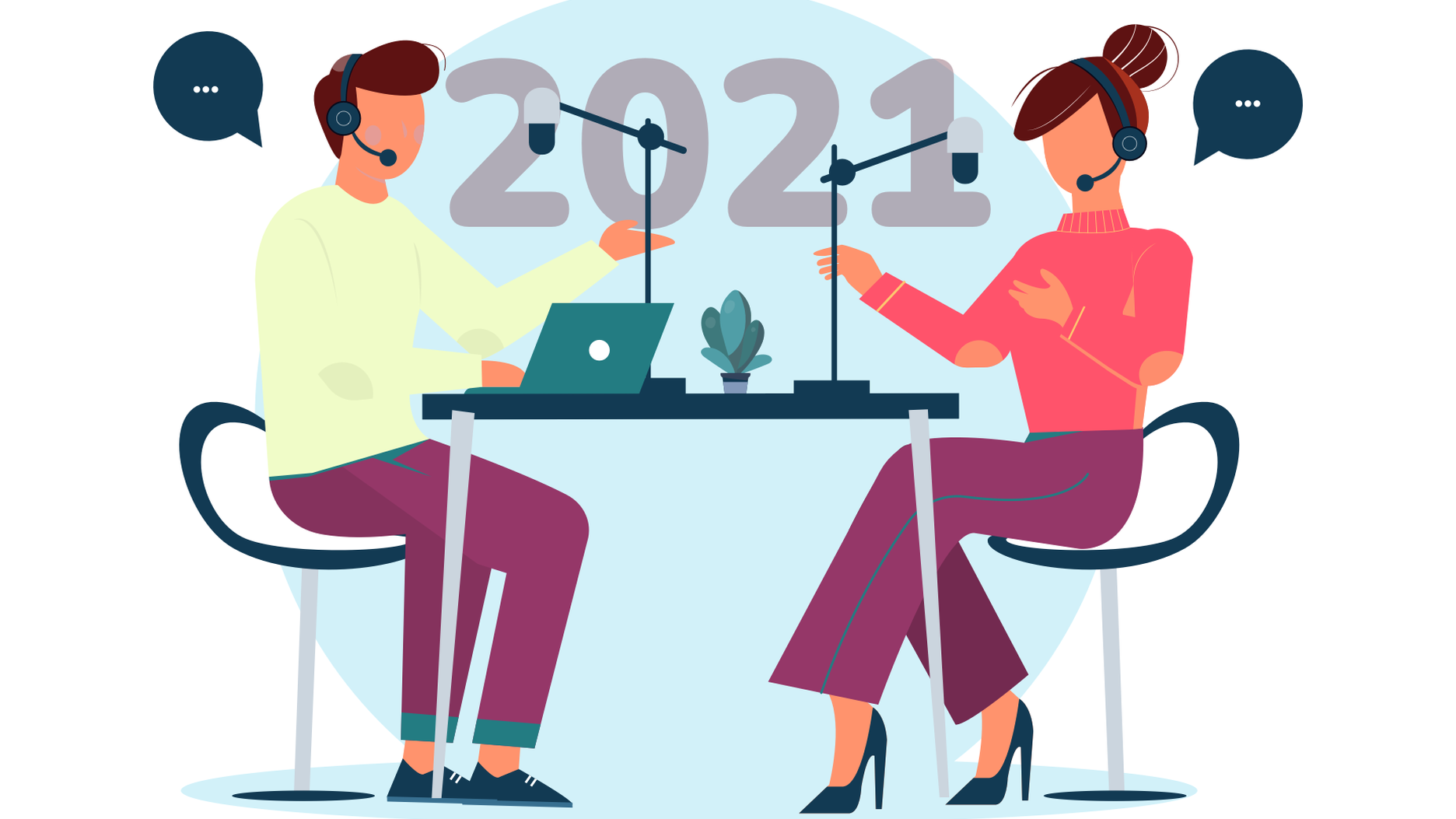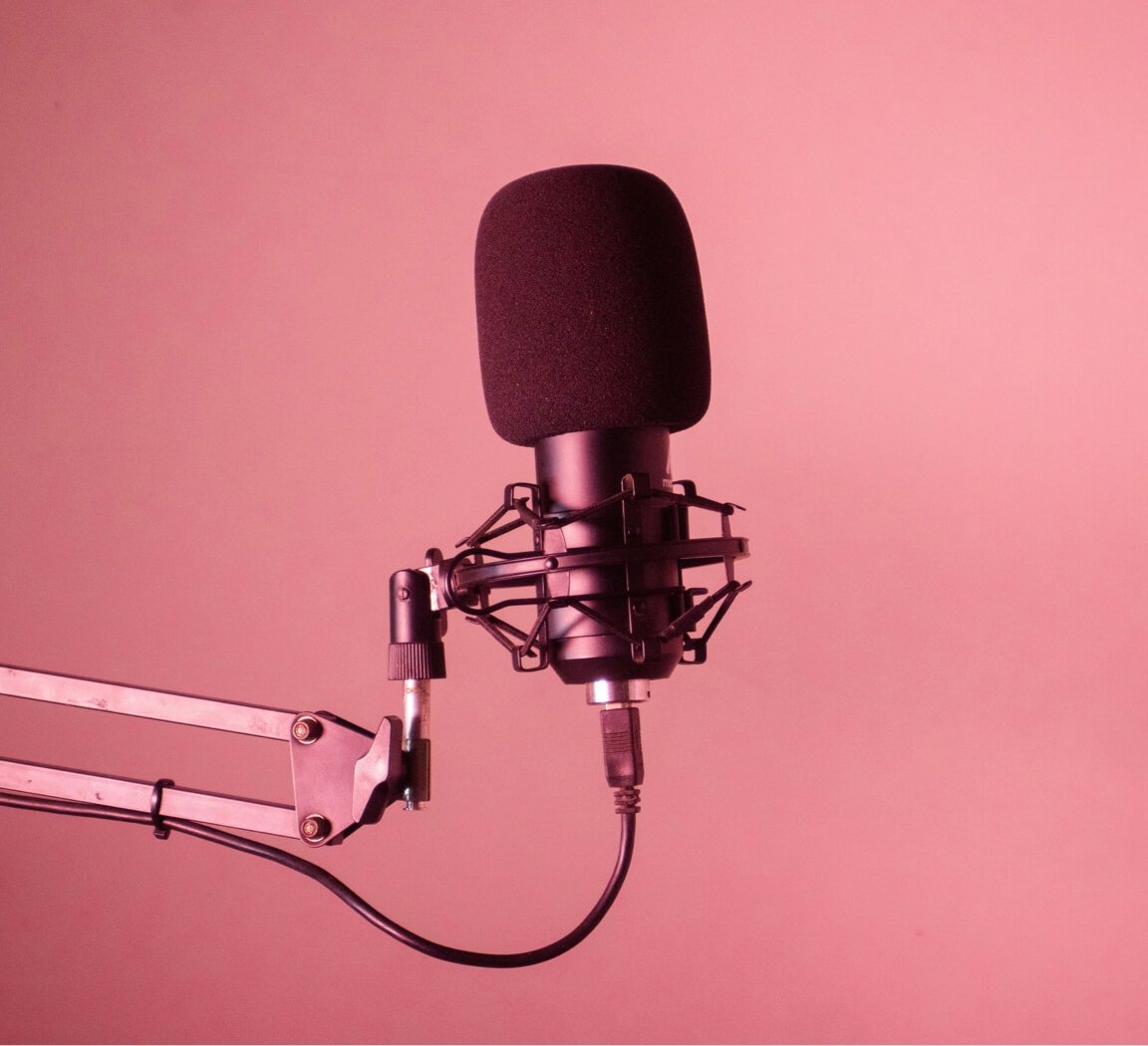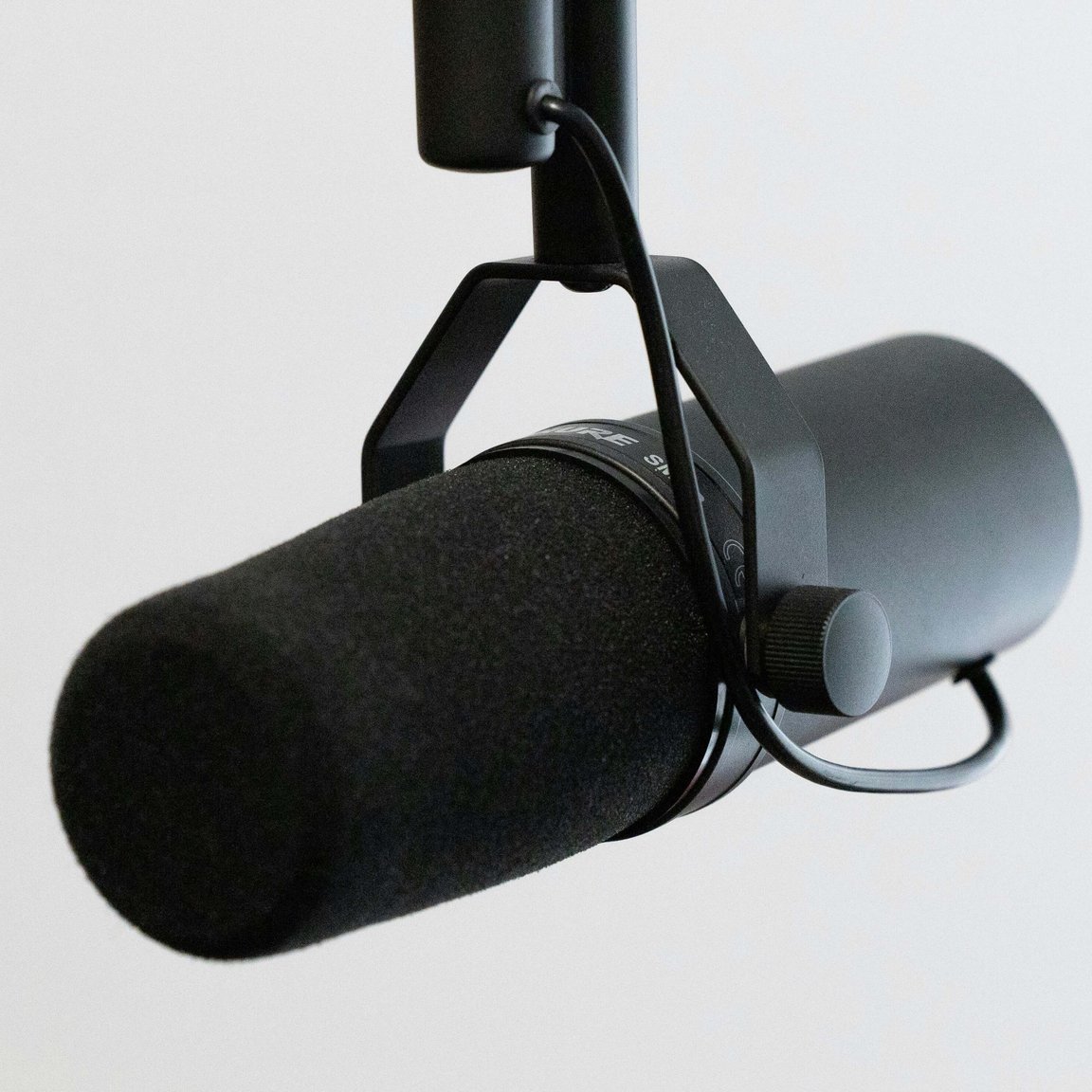I started the Podcode blog in May, and folded by weekly podcast newsletter into it a month or so later. Since March I’ve kept my finger on the pulse, looking at the podcasting ecosphere and sharing the best advice we as busy creatives can make use of.
Here are my highlights from the year, in the categories of planning, recording, craft, growth, and monetisation.
Planning

Whether planning a new show from scratch or just thinking about each episode, podcast creators gave us some useful advice.
Use Notion
I love Notion. If you and I are together in a room and I get that Notion look in my eyes, back away slowly ‘cos when I get started, I don’t stop. I’m not the only one who sees the benefits of using this knowledge organisational tool to help improve your podcasting productivity.
Notion is an application that provides components such as notes, calendars and reminders to make your life easier, and it will absolutely save you time while working on your podcast.
Pat [Flynn] says that unless you know how to plan and organise the creation of all the content you’re creating, you’ll either get confused and start to feel overwhelmed, or slack off and fall behind. That’s where Notion comes in. He likes to use the app to create and assign tasks — such as the editing of a podcast episode or filming of a YouTube video — to different members of his team, as well as checking in on the status of those tasks.
From 7 podcast automation tips that will save you time, by SquadCast
If time is limited, don’t waste it on requesting to be featured by Apple unless you’re already famous
I found out this year that the days of producing a good show, emailing Apple and appearing in New & Noteworthy are over, and it’s now a lottery unless you’re a proven name. That’s understandable given the huge scale of the podcast industry, and we can’t expect Apple to be across everything. Still smarts though. But Jack Rhysider of Darknet Diaries has got his head screwed on about it:
My show has won many awards and has grown a lot, and guess what? The people at Apple Podcasts actually listen to and enjoy podcasts. And one show they apparently like internally is mine. So they reached out to me and offered to feature it. This is really rare... But surely that doesn't help you figure out how to get featured. This is why I say it's more of an art.
From The effects of being featured on Apple Podcasts, by Jack Rhysider
Pick a name that’s short and simple
Naming things is hard, but it’s worth taking the time to think about. I loved Somnath’s advice from back in May.
The key to choosing the best podcast name is to be as creative as you can without destroying the idea of simplicity. Remember to keep it short and concise, make do with wordplay, avoid using “podcast”, and make sure that you check it for uniqueness. You don’t want to be in the middle of your podcast series and finding out that your name has already been trademarked.
From 7 tips to remember when choosing a podcast name by Somnath Basumatary
Who is your podcast for?
If you’ve read any of my stuff, you’ll know I talk a lot about a thing called the Listener Story. It’s the foundation I help clients build, so they get clear on who they’re serving. 18sixty had some great thoughts about audience in their post about artwork.
Your podcast artwork is the first thing a potential listener will see in their podcast app, in a review, or a share via social media so it’s so important to come at this from their point of view. Think about what sort of imagery, art, words, fonts or graphics might grab their attention.
From How to make great podcast artwork that pops, by 18sixty
Recording
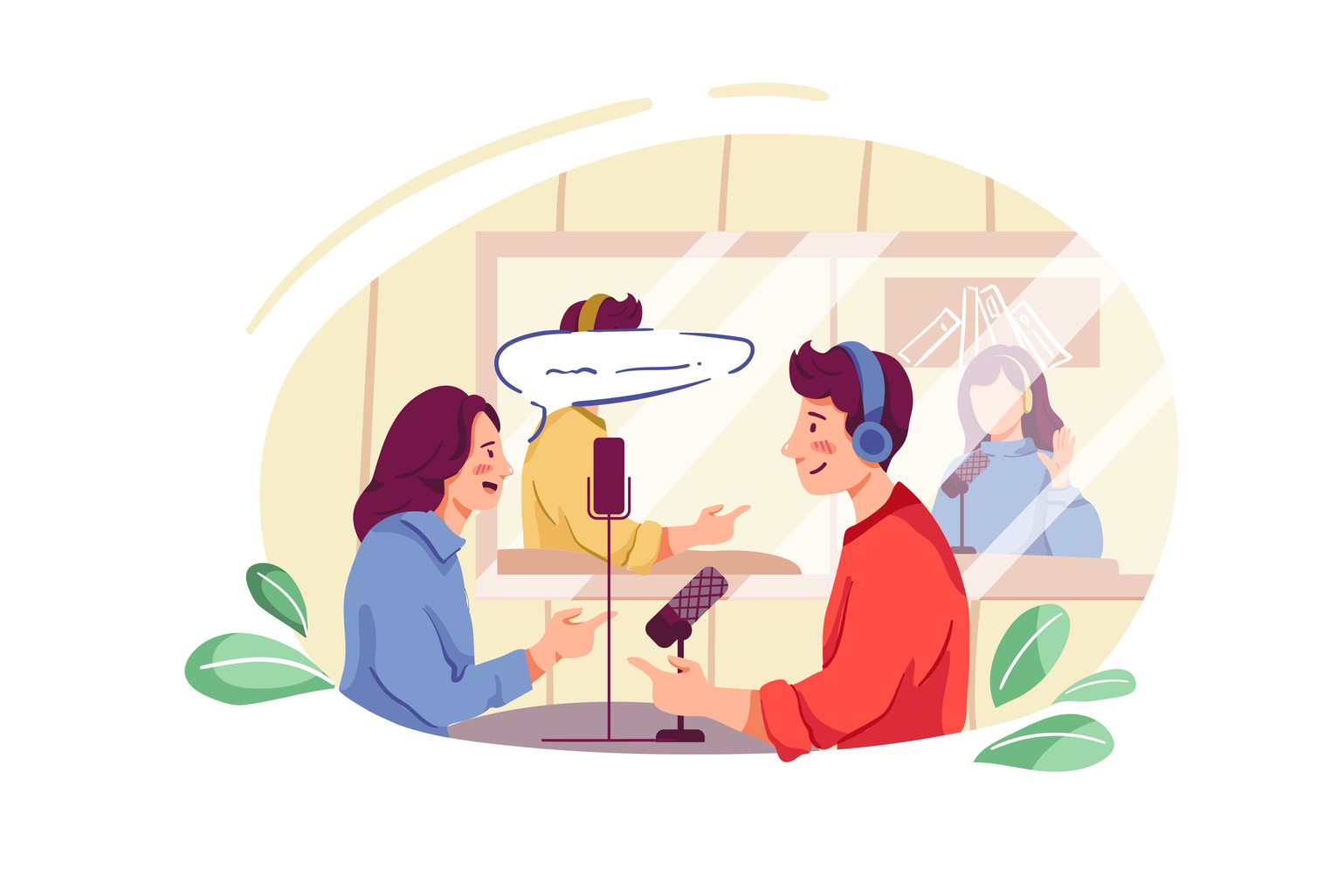
Podcode has always been a bit more about the technique than the tech. Here are some of the highlights from creators with experience making audio sound great, without necessarily having thousands – or even many hundreds – of dollars of equipment.
Find the right recording space
When looking for a room to record in you want to try to choose a room that has few or no windows... Windows are going to let in noise from outside such as traffic, birds chirping, your neighbours mowing their lawn, etc.
You also want to look for a room that isn’t too large. Rooms that are large with high ceilings tend to have more echo in them and results in poorer sound quality. You may also find this to be the case in rooms that are quite empty, they usually produce more of an echo as well.
From 5 recording tips for the at-home podcaster, by SquadCast
Bring the microphone close to your source
[Bring] the mic (almost) as close to your mouth as possible. A good rule of thumb (pun intended) is to use the distance between your thumb and pinky to get an approximation of how close you should be. If you get too close to the mic it can cause sound artefacts that will ruin your recording... If your mouth is too far away from the mic, you will inevitably have to increase the gain on your sound recorder. This means bringing up the noise as well which will make your recording sound worse, and since your mouth is far away you will sound distant to the listener.
From How to improve the sound of your podcast, for free, by Nomono
High quality audio makes you sound smarter
When audio quality is high (vs low), people judge the content as better and more important. They also judge the speaker as more intelligent, competent, and likeable.
In an experiment, people rated a physicist’s talk at a scientific conference as 19.3% better when they listened to it in high quality audio vs slightly distorted, echo-prone audio.
From High quality audio makes you sound smarter, by Thomas McKinlay
Edit your podcast – no exceptions
There’s a misconception that it’s OK to not edit your podcasts. The only time this applies is if you’re a seasoned pro and you know how to drive a show forwards with momentum, and keep to time. Tom Merritt and the Daily Tech News Show are the best in the game.
You want your audience to hear the best possible version of your podcast and that means you need to be respectful of their time and remove anything that doesn’t serve them. That often means putting your ego aside and removing parts of the show that you think are great but that might not add anything for your audience. That can be tough but it’s important if you want to keep people coming back for more.
From Do you need to edit your podcast?, by Rachel Corbett
Craft
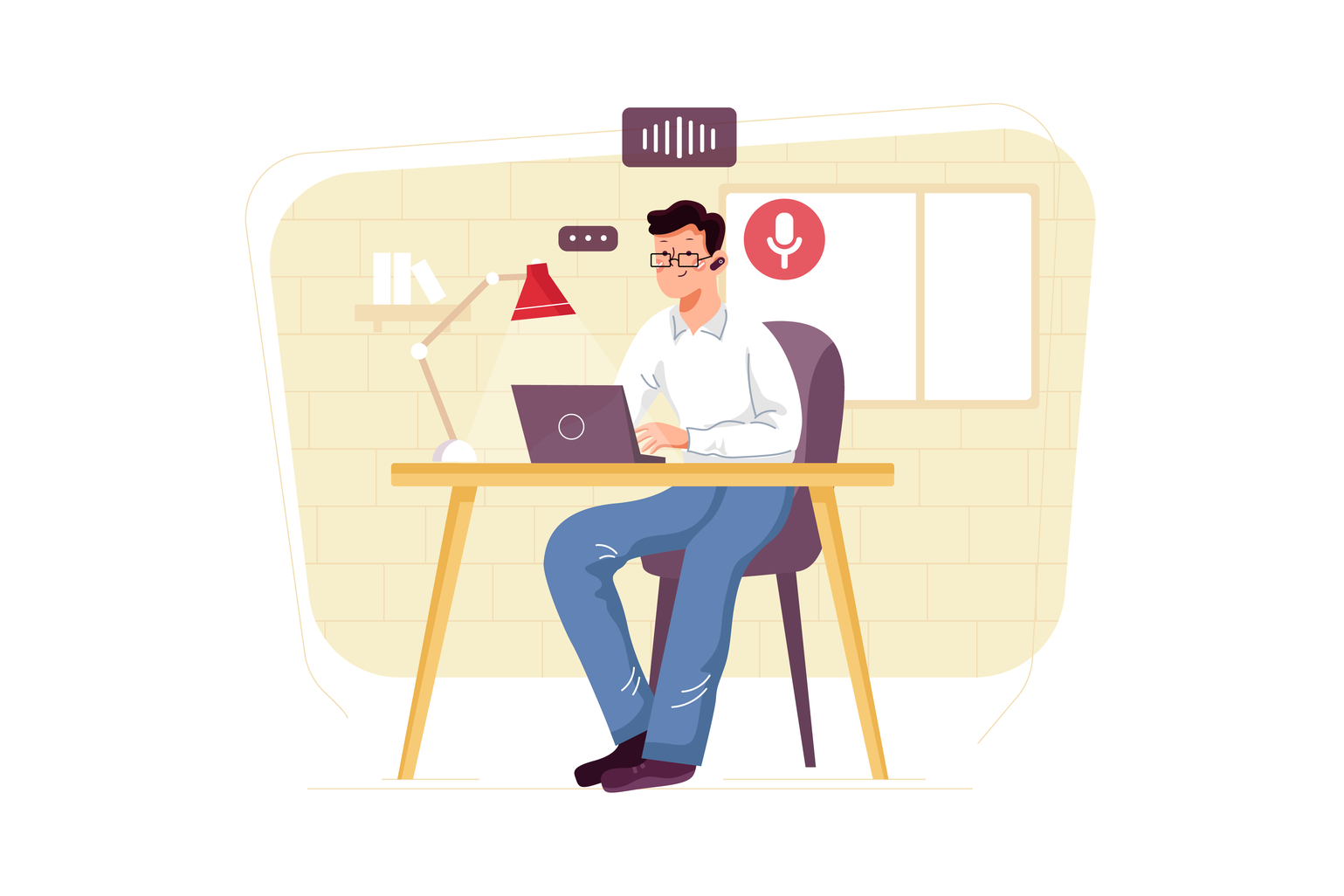
So you’ve launched, and now you’re on the road to regularly-produced episodes. What next?
Read your reviews, and learn from them
Psst: they’re not always in Apple Podcasts. Sometimes you’ll find them on Twitter and in other social media hangouts. But wherever you find them, look for the constructive ones, and see what you can learn from them.
I tried a new editing style for a while and several reviews mentioned that it was too fast. The episodes were hard to listen to and didn’t sound natural. So, I started leaving longer pauses and spoke a little slower. Those reviews offered helpful feedback that ultimately helped me create a better podcast. I think we all won.
From An open letter to the person who gave my podcast a 1-star review, by Rachael Kable
Make your intro the last thing you do
An intro or a cold open is a must. I wrote about my intro turnoffs earlier in the year, but I’m not the only one with opinions on how you start your episode.
Do your intros after you have produced the rest of the show. It should be the last thing you do so that you know exactly what you are going to tease. A good intro takes thought, good writing, and the remembrance that each show is a new show for someone.
From How to improve your podcast’s introduction in 4 easy steps, by Matty Staudt
Stop asking people about their “career journey”
I no longer have a show where I interview guests, but if I did, I’d take this piece of advice from East Coast Studio to heart.
This leads even the most talented and established professional to recount tales of their school life. How their favourite teacher guided them. How their life then progressed through University, failed relationships and career wrong turns. If it goes down like that these answers are never, ever brief. Ever...
You will need to have clocked up a load of Goodwill Points to make your listener feel that their relationship with you will see them through this off-topic detour.
From Are you really sure you need to ask ‘that’ question?, by East Coast Studio
Take a break – it’s OK (and necessary)
Burnout is one of the leading causes of pod-fade. Some of it has to do with mismatched expectations, but much of it comes from simply working so damn hard on your show. Cassie knows.
Even when it’s fun, it’s work, and that can always lead to burnout... I have an obligation to a lot of different people to finish tasks on time. And anytime an art project stops being just for you and becomes something with deadlines and obligations, it’s not just a hobby anymore: it’s work...
I’ve often heard it said that if you don’t pick a time to take a break, your body will pick it for you. In my experience, that very much applies to podcasting and burnout.
From Avoiding podcasting burnout when you love your work, by Cassie Josephs
Take accessibility seriously
I made a pledge to my clients that in 2022, I’ll be producing AI-generated transcripts (powered by Descript), and strongly urging my clients to publish them to their website (they’ll be linked to from hosts that support podcast transcripts.)
But accessibility goes behond transcripts, as Zoe Pickburn brings up.
There are a number of things that creators can do in post-production to make the audio sound more clear.
Independent podcast and BBC radio producer Callum Ronan advises producers to take steps in recording and editing:
- Balance audio for the left and right channels of headphones/speakers
- Remove bleeding from microphones to avoid echoes or delays
- Mix content to balance sound levels across multiple hosts
- Work to a LUFS -16 to -18 loudness standard to prepare the file for publishing
From How to make podcasts better for people with hearing loss, by Zoe Pickburn
Put effort into your episode descriptions
After your artwork, what’s the next thing a listener interacts with apart from your audio? Your description.
Even if you have the best podcast in the world, it’s all useless if people don’t listen to it, so you first need them to see something that encourages them to start playing your podcast. That’s when podcast descriptions come in handy...
Reading podcast descriptions shouldn’t take more than a few seconds, so everyone can read them at all times.
From How to write a good podcast description, by Audry.io
Growth

The theme for this year – certainly for me, and I think reflected in the wider sphere – is that there are no growth shortcuts. It’s about showing up consistently, and communicating generously. And just with planning a launch and hoping for success, there are expectations to manage.
Don’t make your interview guests into your marketing team
It’s possible that if you interview a guest with a huge social media following, some of those followers might become your followers too. But, there isn’t a transitive mathematical property when it comes to social media followers and podcast audiences. Unfortunately, some podcasters believe that this is the case. If you have X number of followers on Tuesday, and on Wednesday, you upload your interview with a guest who has Y number of followers, don’t expect that by Friday, your follower count will balloon to X+Y. Guests aren’t under an obligation to promote your show to their followers. If they do, it’s very kind of them. Don’t expect them to.
From Five things to avoid if you want to grow your podcast by Pod Bible
Don’t rely on podcast apps to help you grow
A great way to get new listeners to a single episode is to stuff your podcast name and episode title with keywords. But it’s not how you keep them, and it’s not how you build trust with them.
The object is not to find new listeners through these apps (unless you’re paying for ads within them). Instead, make your podcast easy to find by name, so that when people read your insightful tweet, your on-point newsletter submission, your helpful blog post or your conference talk slide, they know exactly what to search for, whichever app they use.
From How people find your podcast in apps - who indexes what?, by me!
Invest in relationships
One of your most important investments as a podcaster is building meaningful relationships with your listeners and the people in your industry. Building relationships with your audience based on trust, integrity and honesty is one of the essential investments a podcaster can make.
The best way to build meaningful and authentic relationships with your audience and your niche is to make these connections more about the other person than about yourself.
From The best investments entrepreneurs can make for their podcast, by Jared Easley
If you’re going to use Twitter to promote your show, do it right
Podcasting is a very human, very personality driven medium; the ‘podcast [Twitter] account’ brigs an uncanny and unnecessary corporate vibe to proceedings. It’s telling that many of the biggest podcasts in the world don’t even operate a ‘podcast account’, they just allow the host/s to speak for the show and for themselves on social media...
From It’s time to end podcast self-promo on Twitter, by Nick Hilton, who also has some great points about the “podcast recommendations???” trend on Twitter.
Give your episodes names that create curiosity
You may have the single most important guest on your topic on your episode. The content may change lives. But if the audience doesn’t know the guest, then they probably don’t know what this guest has to offer. How do you entice them to listen?
From Episode titles: get your audience to click Play, by Kim Krajci
Discount YouTube at your peril
Tom Webster has talked a lot this year – and wisely so – about podcast listening on YouTube. It’s happening. People are listening to podcast content on YouTube, whether you like it or not, so it’s about time to get on board. Here’s his most recent musings on the topic.
Making money
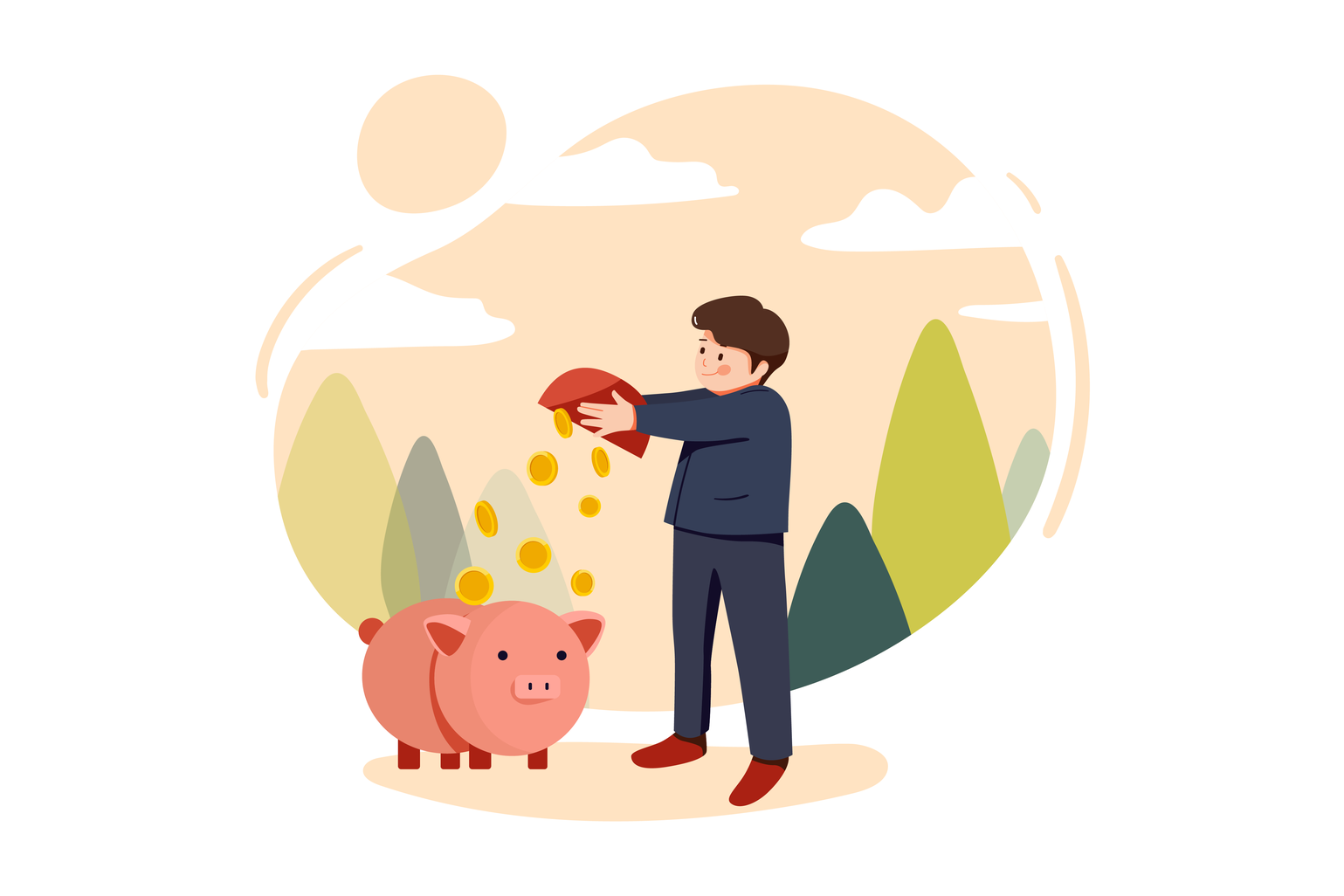
You’ve got a great podcast that your audience loves. They trust you and they like you. How can you make money from your podcast without losing your soul, or selling them – or yourself – short?
Make your Apple Podcasts paid subscriptions shine
This year, Apple kicked off the race to add paid subscriptions to podcast apps. I say “race”, it was pretty much a two-horse race between them and Spotify, and although Spotify’s system is open, I’ve not heard much about it since launch. Anyway, if you want advice on making a good impression on prospective paid subscribers, here’s Apple’s advice.
As you set up and submit your subscription for approval, here are a few best practices to support its success. In general, the guiding principles are:
- Clearly communicate the benefits you are offering subscribers.
- Ensure you are uploading enough subscriber-only audio to provide a premium experience.
From Apple Podcasts subscriptions best practices, by Apple
Understand the value your paid subscription offers customers, not how it benefits you
If you plan to make (more) money through Patreon, Sean Howard from Fable and Folly has got your back.
In business terms, value is defined by the customer, not the business. The customer has certain expectations that come with a $5 a month pledge. Back in 2017, patrons were spending just over that amount for Netflix, which offers hundreds of new TV shows and movies every month...
Becoming a patron of a successful Patreon creator opened my eyes. They cared about me. They knew who I was. They sent me messages. They rolled out multiple updates and features per month.
And this change in mindshift changed everything.
From The one change that took us from $20 to $900 a month on Patreon, by Sean Howard
Don’t make your ads over-long to please sponsors
If you read ads on your show, Danny Sellers, writing for Bryan Barletta’s Sounds Profitable newsletter offers good advice.
Asking or assuming longer ads are “added value” is diminishing the fact that host-reads are fueled by the host’s ability to connect with their audience. If products do require more of a profound explanation or context, brands should entertain collaborating with podcasters or networks to create a more robust campaign, such as a named sponsor of a run of episodes or inclusion in other owned channels (e.g., newsletters, social media, events).
From Added time isn’t added value, by Danny Sellers
Make the most of dynamic content
Buzzsprout, Captivate and Transistor this year launched options for dynamically inserting content (like host-read ads) into your podcast episodes.
So that’s 2021
It’s been a complicated year that’s brought its own challenges across the globe. Fro me it’s the year I sold my tech business and became a blogger – who knew? It’s also a year in which we’ve seen further consolidation on the corporate side, and more bitcoin distractions.
I experimented with a few things this year, like publishing short animated videos to YouTube #Shorts, and running my first robot-assembled podcast.
I’ll be here next year to continue sifting through the news to pick out the stuff that matters to busy creators on a mission. Thanks to Discover Pods, Headliner, Jeremy Enns, LibSyn, the Podcast Business Journal, Podcast Gym, Podcast Movement, Blubrry’s Podcaster News, Podnews, She Podcasts, Wavve, and WoC Podcasters for doing the hard work, and making this possible. And to HoangPts for the illustratinos.
You can keep up with me on Twitter, Instagram, Facebook, and LinkedIn. And I’ll be here at podcode.co, writing as succinctly as I can about the fundamental building blocks that make up a great podcast. My newsletter game’s pretty hot too, so subscribe now in time for January!
Enjoy the break, and I’ll check in with you in 2022.
